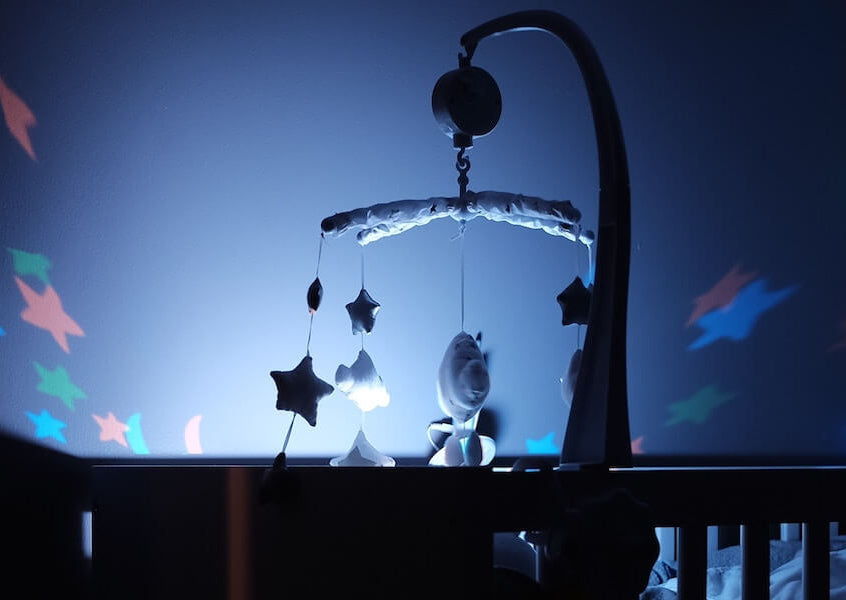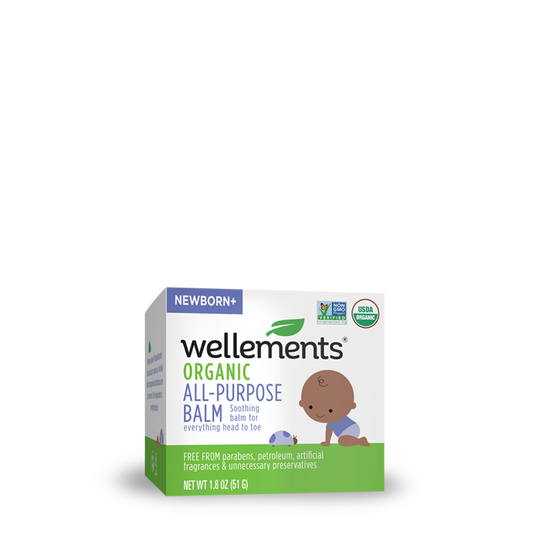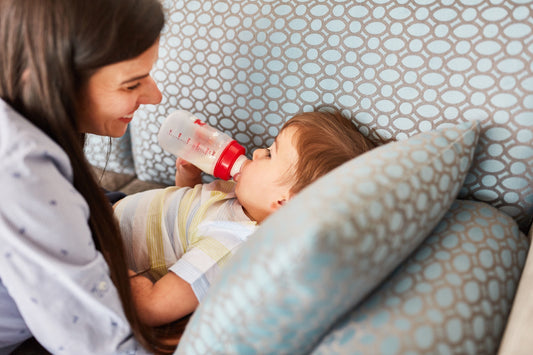Is Eczema Keeping Your Child Up at Night?
| updated:Share

There are few things as wonderfully soft as a baby’s skin. Though, sometimes, the same delicate qualities that make a baby’s skin so velvety smooth also makes it susceptible to irritation. Baby eczema, or atopic dermatitis, is a common skin condition that can flare for a multitude of reasons, causing a dry, itchy rash. What is one of the most common impacts of this skin condition? Sleep disturbances.
If you are a parent trying to manage your baby’s eczema and reign in an already unpredictable sleep schedule, you are not alone. There are multiple things you can do to help ease your baby’s symptoms and help everyone get a better night’s sleep.
Understanding Your Baby’s Eczema
Genetics can often play a role, but baby eczema is not solely a genetic condition. It can also stem from allergies, a compromised immune system, or environmental factors. One or multiple of these triggers result in a weakened skin barrier, making it susceptible to irritants and allergens. The skin then becomes dry and itchy.
What Does Eczema on a Baby Look Like
When experiencing a flare, the skin is not able to retain enough moisture. Because the skin is so dry, it typically feels very itchy, creating a domino effect of worsening symptoms as the skin becomes progressively more damaged. The rash can become particularly red and inflamed. It can evolve into small blisters or sores, which may also ooze. At nighttime, symptoms tend to become worse.
Why Eczema Can Disrupt Your Baby’s Sleep
Eczema may very well be preventing your baby from falling and staying asleep because heat exacerbates symptoms. Like in adults, babies’ body temperature naturally rises when it is time to go to sleep. If your baby gets hot under the covers or experiences friction from their skin rubbing against pajamas and blankets, that already itchy, burning rash gets even more inflamed.
Signs Your Baby’s Sleep Struggles May Be Linked to Eczema
A baby’s sleep patterns can vary, to say the least. However, if your little one is frequently waking through the night crying, if they show signs of being itchy, if their rash appears more inflamed in the morning, it is likely their sleep struggles are linked to their eczema.
How to Manage Your Baby’s Eczema and Sleep
Unfortunately, eczema does not have a forever cure because it is a chronic condition, but there are many ways to better control your baby’s symptoms:
- Be mindful and consistent when it comes to bath time. Baths can wash away irritants, but they can also cause over-drying of the skin when not done properly. Bathe your baby in lukewarm water for 5 to 10 minutes only. Use chemical-free, fragrance-free cleansers and moisturizers.
- Pat your baby dry as opposed to rubbing. Again, rubbing fabric against skin causes eczema provoking friction. Towels made with natural fibers, like cotton, are best.
- Keep your baby’s skin well-moisturized. The American Academy of Dermatology mentions “thick creams and ointments are generally more effective than lotions or oils.” Wellement’s Organic All Purpose Balm is free of allergens, chemicals, mineral oils, and petroleums, offering an incredibly safe and soothing option for even the most sensitive baby skin.
- Choose natural fibers. This includes pajamas and bed sheets made out of breathable fibers, like cotton. Not only do synthetic fibers trap heat, but they require loads of harsh chemicals to be created in the first place. Those inflammation-causing chemicals come into contact with your infant’s already weakened skin barrier.
- Keep your baby’s room cool. This can help prevent your baby from becoming too hot and sweating.
- Purge your home of triggers. This is a commitment that can take quite a bit of time and effort, but it can be very beneficial to everyone in the home. Chemicals definitively disrupt the skin barrier. Laundry detergents, fabric softeners, soaps, home-cleaning products, your make-up, baby wipes — all of these can come into contact with your baby’s skin one way or the other. If your baby is experiencing eczema flares, it is especially important to opt for clean products that are less likely to further compromise your infant’s weakened skin barrier. Environmental triggers, such as dry air, pollen, pollution, and dirt should be considered as well. Maintaining a clean home and an air purifier help.
All-Purpose Balm
4.8 / 5.0
(42) 42 total reviews
Gentle Nighttime Routine Tips
After a 5 to 10 minute lukewarm bath, use a chemical-free, fragrance free moisturizer, like the Wellement’s Organic All-Purpose Balm, to ensure your baby’s skin stays hydrated. In addition to trimmed nails, cotton mittens and breathable footed pajamas can also help buffer scratching. Keeping your baby’s room cool and the air comfortable with a purifier and humidifier will also contribute to a better night’s sleep.
When to Talk to Your Pediatrician
A pediatrician can confirm an eczema diagnosis when you first notice symptoms. Especially if your baby’s symptoms remain persistent or worsen, your pediatrician can provide guidance and determine which further treatments may be necessary.
Fully treating baby eczema can require trial and error, but certain habits can be very effective in managing symptoms. Being mindful of your little one’s exposure to irritants, their bath time routine, and the moisturizing products being used help ease symptoms to promote a better night’s sleep, both for your baby and you.
Sources:
- https://www.aad.org/public/diseases/eczema/childhood/treating/treat-babies
- https://www.niaid.nih.gov/news-events/researchers-identify-link-between-common-chemicals-and-eczema



